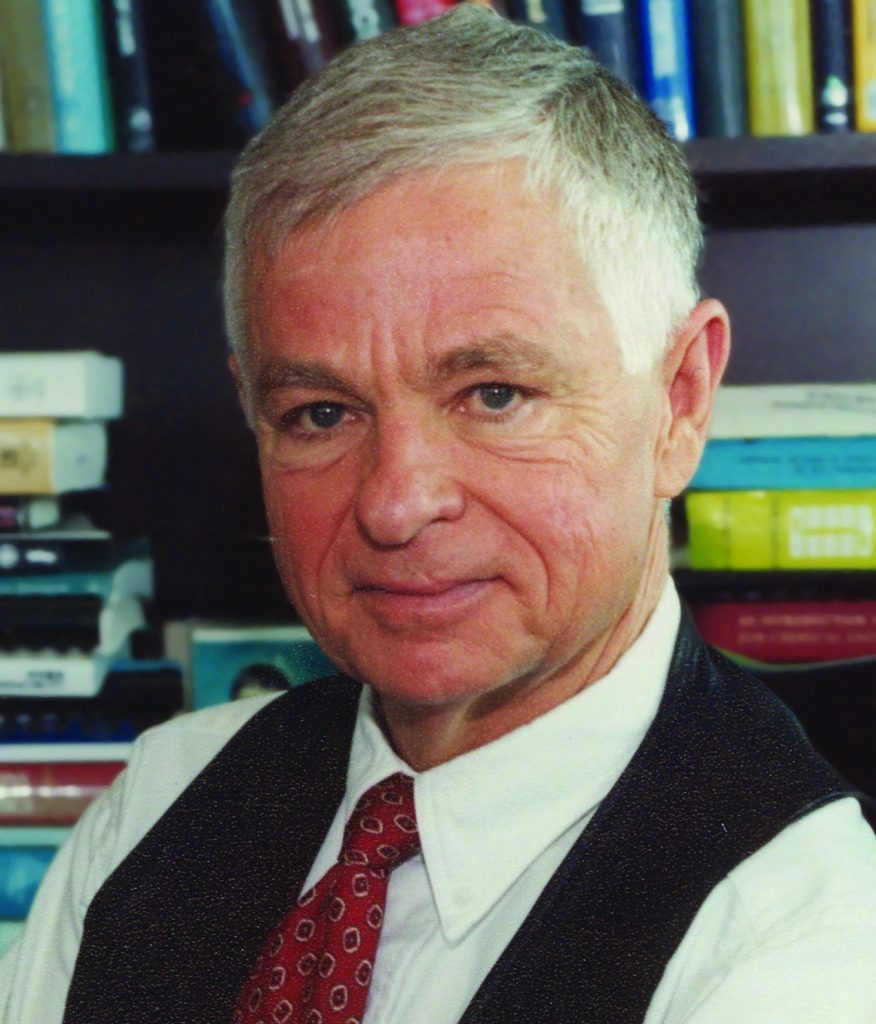 The Journal of The Electrochemical Society is publishing a focus issue in connection with the Multiscale Modeling, Simulation, and Design 5: In Honor of Ralph E. White symposium at the 243rd ECS Meeting.
The Journal of The Electrochemical Society is publishing a focus issue in connection with the Multiscale Modeling, Simulation, and Design 5: In Honor of Ralph E. White symposium at the 243rd ECS Meeting.
This focus issue is in honor of Professor Ralph E. White on the occasion of his 80th birthday. Professor White made significant contributions to the field of modeling and simulation of electrochemical systems—including capacity fade prediction of lithium-ion batteries, efficient algorithms for battery models, and models for chlor alkali industries. Dr. White has received several international awards, including the 2013 ECS Olin Palladium Award for contributions to the science of electrochemistry, 2016 ECS Vittorio de Nora Award for contributions to the field of electrochemical engineering and technology, and 2018 Henry B. Linford Award for distinguished teaching. As a department chair and Dean at the University of South Carolina, he was instrumental in training the next generation of students, researchers, and colleagues who have gone on to make significant contributions in academia and industry.
New electrochemical applications are being discovered where the control of events from molecular to macroscopic length scales is critical to product quality and process control. In addition, improvements in many existing technological systems are based today on understanding how to control electrochemical events occurring at near molecular length scales. Future trends in electrochemical engineering will be influenced by the need to control processes and ensure quality at the molecular scale. Transfer of molecular-scale understanding and discoveries into new and improved products and processes requires integration of system behavior across range of length and time scales. New engineering approaches are needed that couple traditional current- and potential-distribution approaches to molecular-scale events in order to accurately describe and design systems to meet the needs for the next century.
Submissions concerning all aspects of multiscale modeling, simulation, control, and design of electrochemical systems are welcome. Topics of interest include:
1) Experimental and theoretical methods for understanding and describing behavior in electrochemical systems at the molecular level;
2) New engineering methods and simulation algorithms with improved computational efficiency and quantification of uncertainty that enable coupling to molecular-scale processes for the design, control, and optimization of entire realistic systems, including those where stochastic events influence quality;
3) Use of molecular understanding, design, and/or control to address 21st century electrochemical engineering applications such as NEMS, MEMS, and electronic device fabrication; systems and materials for stationary power; power systems for transportation; electrochemically enabled devices, systems, and products for medical technology; and corrosion systems, among many others.
This issue is open to all authors interested in submitting review, critical review, perspective, methods, communication or original research articles.
Accepting Submissions: February 23, 2023 | Submission Deadline: May 24, 2023
Guest Editors
Venkat Subramanian, The University of Texas at Austin, U.S. | venkat.subramanian@utexas.edu
Gerardine Botte, Texas Tech University, U.S. | gerri.botte@ttu.edu
Taylor Garrick, General Motors, U.S. | taylor.garrick@gm.com
Godfrey Sikha, Tesla, U.S. | gsikha@tesla.com
Shriram Santhanagopalan, General Motors, U.S. | Shriram.Santhanagopalan@gm.com
Egwu Kalu, FAMU-FSU College of Engineering, U.S. | ekalu@eng.famu.fsu.edu
Dawn See, Shell (retired), U.S. | dawnmisee@gmail.com
Niloofar Kamyab, COMSOL, Inc., U.S. | niloofar.kamyab@comsol.com
Yiling Dai, Rivian, Inc., U.S. | yilingdai@rivian.com
Technical Editor
John N. Harb, Brigham Young University, U.S. | john_harb@byu.edu
Editor-in-Chief
Robert Savinell, Case Western Reserve University, U.S. | rfs2@case.edu
Articles are published in a standard issue of the journal as they are accepted. If selected at submission, accepted papers are published online in the ECS Digital Library on IOPscience within 24 hours of scheduling for publication. The version of record is published online within approximately 10 days of final acceptance.
Visit the ECS website for author submission instructions and requirements for each article type.
OPEN ACCESS: Authors choosing to publish open access agree to pay an article processing charge (APC) if their papers are accepted. APCs are discounted by 75 percent for ECS members and waived for authors from ECS Plus subscribing institutions. Check if your institution subscribes to ECS Plus. Discounts are applied at the time of payment.

